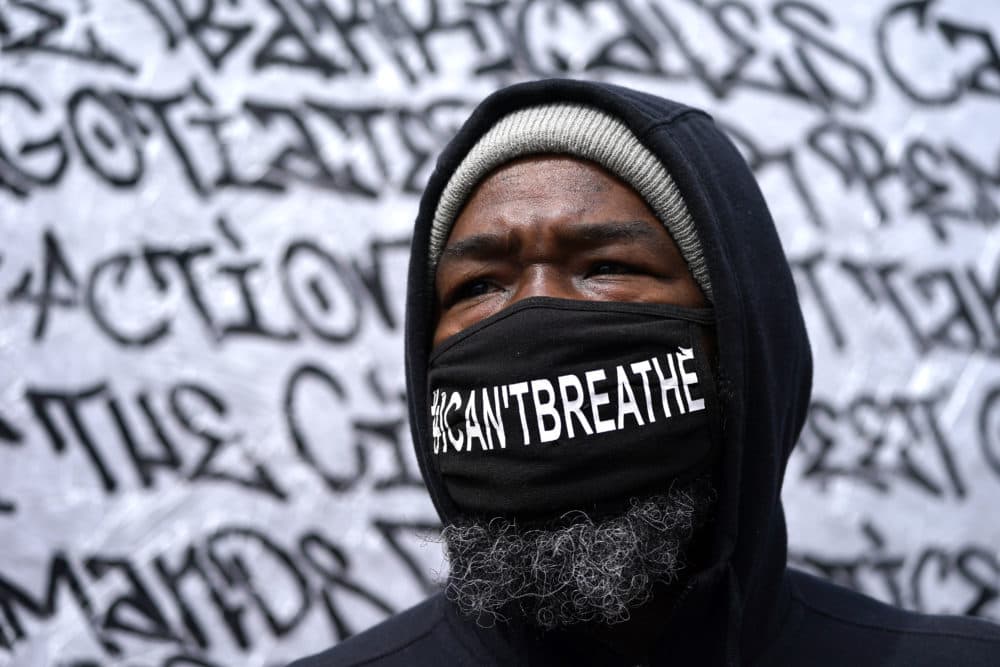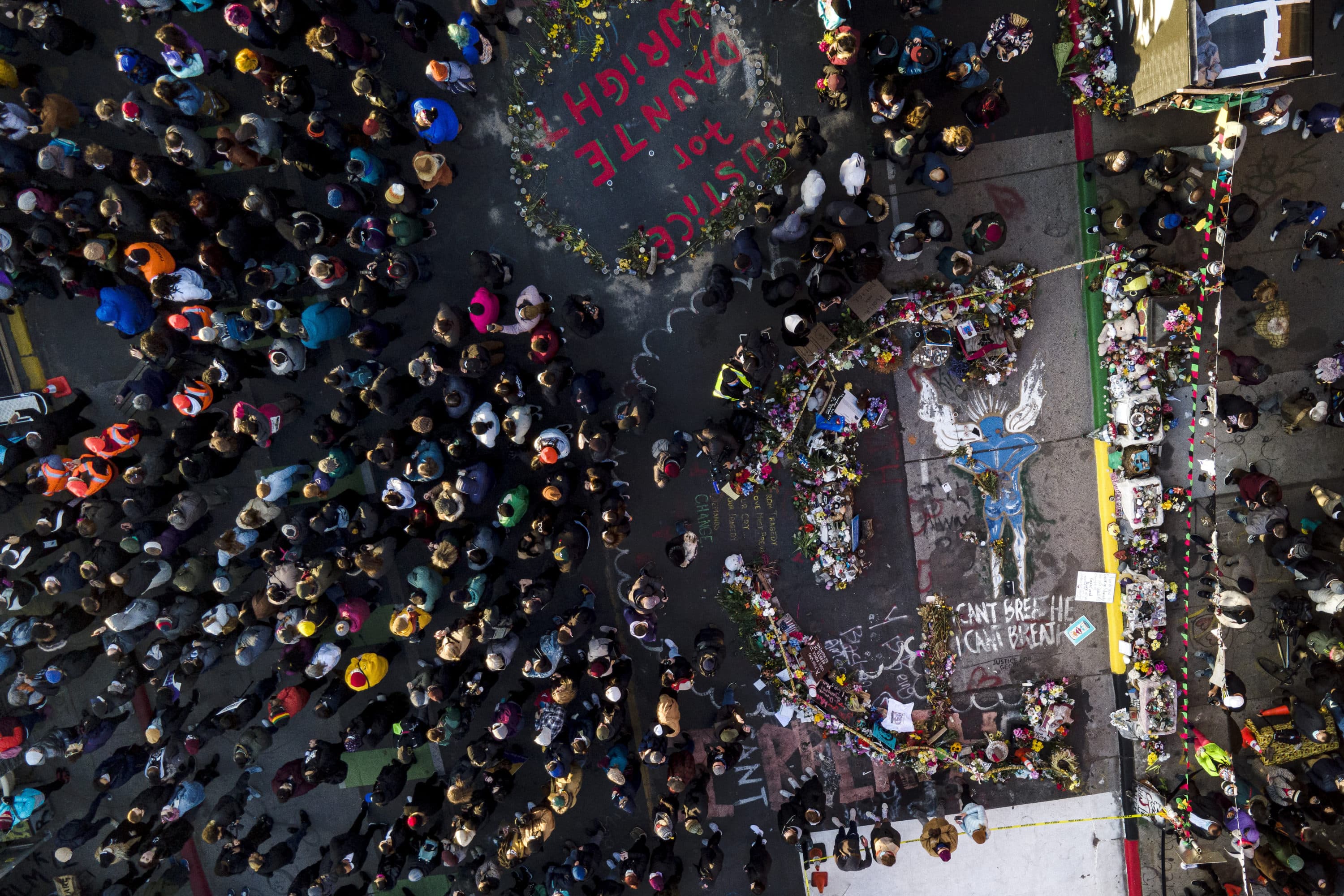Advertisement
Commentary
Derek Chauvin Was Convicted. But The Racist Story Of His Defense Remains

Recently, during the George Floyd murder trial, we were struck by a comment we heard, almost an aside. This person has expressed both outrage at Floyd's killing and a strong belief that Derek Chauvin, the former police officer who leaned on Floyd’s neck for nine and a half minutes, deserved to be convicted of murder: “It’s just so sad, the cycle of addiction, so tragic that it has such terrible outcomes.”
The comment — which came after Courteney Ross, George Floyd’s girlfriend, testified that they had both struggled with opioid addiction because of chronic pain — led us to think more broadly about what was on display in the trial. From the first days, it was as if we were watching a split screen: on one side, the trial arguments; on the other, their social meaning.
The prosecution built its case, arguing that Chauvin’s use of force against Floyd -- excessive and departing from accepted police practice -- led to Floyd's death. The defense countered at every turn that Floyd died because of drugs and his underlying health conditions. The events at the scene required firm restraint of the victim, they argued. Early in the first week of the trial, the defense attorney made a point of emphasizing Floyd’s large size and weight when cross-examining Genevieve Hansen, the off-duty firefighter and EMT who had offered to assist after Floyd's arrest and who later commented that Floyd looked “small.” Clearly, the defense wanted Floyd’s size in the record.

From the beginning of the trial, the defense relied on a narrative rife with racist stereotypes that have been recycled over and over about Black people, especially Black men: that they are drug addicts, criminals, loud and angry, and therefore, dangerous. The defense’s case makes it possible for a person to hold divergent ideas about the case: support for the prosecution’s case and the jury verdict against Derek Chauvin but also confirmation of the persistent narrative about dangerous Black men. That old, racist narrative might be expected to hold credence with those in support of Chauvin, but its repetition also reaches people who believe the officer acted excessively.
Because there were cameras in the courtroom, it’s been possible to watch all of the proceedings or a sampling of highlights presented in news accounts. We are not making a legal analysis. We study communication and we're analyzing, from the perspective of the social impact of the trial, the story that the trial told. The defense's argument relied on stereotypes of Black men: George Floyd was big. He was strong. He was on drugs. He had underlying health conditions that Black people have because of the way they live. He had adrenalin pumping through him to amplify his strength. In short, the defense lawyers declared, Floyd exemplifies the vicious "cycle of addiction” in the comment that startled us.
The defense's argument relied on stereotypes of Black men: George Floyd was big. He was strong. He was on drugs.
From a cultural perspective, the recirculation of the images about Blacks firms up the racist narrative, making it possible for a person to see Chauvin’s actions as a police officer so grievously out of line as to cause murder — and yet, at the same time, to see Floyd as just another personification of the racist tropes underlying the defense of the use of force against Black people (even if not in this instance).
Now the jury has spoken. But the record of what happened during the trial, what was said, how the prosecution presented its case and the defense rebutted it remains as part of the social narrative of race. That narrative is not only about justice served or denied but also about racist ideas deep in the culture, showing how it’s possible to see particular acts as racist and wrong and, at the same time, accept other old, racist stereotypes. We fear that many white people will focus only on the justice narrative — and not see the racist story told by the defense, a blind spot that perpetuates racism in the U.S.

